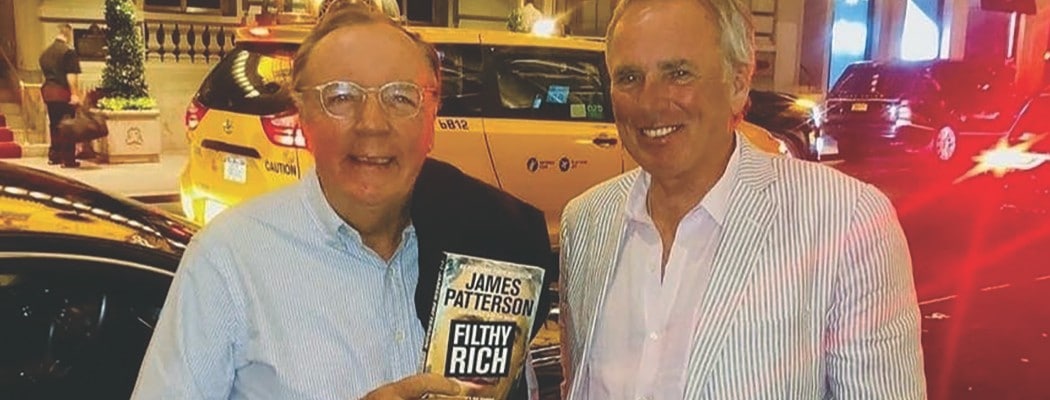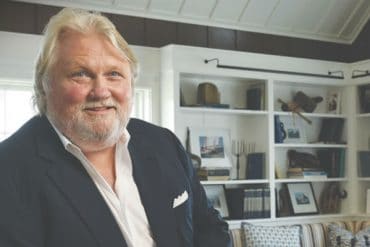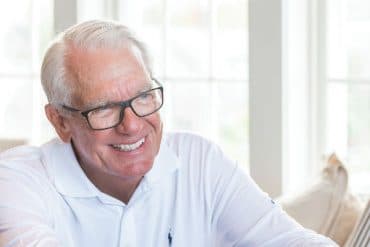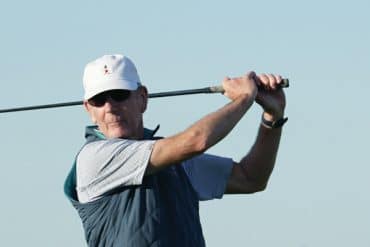The inside story of the reporter who helped uncover the Jeffrey Epstein scandal.
Investigative reporter Tim Malloy is used to risking his life for a story. After the September 11th attacks, Malloy embedded with American troops in Iraq and Afghanistan fourteen times, riding in Black Hawks and Humvees through hot zones. Prior to that, he’d reported from the rubble of the Oklahoma City and World Trade Center bombings. He was on the ground in the wake of the devastating earthquake in Haiti. And yet of all the dangers Malloy has encountered during his long and tenured career as a journalist, he was never more frightened than when he was investigating Jeffrey Epstein in Palm Beach.
Malloy is one of the journalists responsible for cracking open the lurid story of the defamed financier and convicted sex offender who committed suicide in a jail cell two years ago this August. His reporting became the backbone of The New York Times bestseller Filthy Rich, which he co-authored with James Patterson and John Connolly. During a recent trip to Nantucket, Malloy brought N Magazine behind the scenes of the sex scandal that shocked the world.

As an investigative journalist, you obviously have certain instincts. What first made you suspicious about Jeffrey Epstein?
I was a reporter at the NBC affiliate and anchor in West Palm Beach. I used to see Epstein in 2004 and 2005. He’d be riding around near the Colony Hotel in Palm Beach with young girls on bicycles. Beautiful young girls, but fourteen, fifteen, sixteen years old. I then got a tip from a cop and that’s when I knew that there was something up with this guy. Eventually it turned into a big investigation, but it was really a lead from a friend and my observations as a guy who lived in Palm Beach.
And how long did it take to get to the point where you said I’ve got to do a deep dive here?
There were two phases. In 2006, 2007 and 2008, they were investigating him and I covered it a lot locally as a reporter. Then he was given his very light sentence. He didn’t really go away. He stayed in his home with an ankle bracelet and the stockade. Then he served his time, his thirteen months, and disappeared. But I didn’t really kick in on it until 2015 or ’16. I met James Patterson and I said, “There’s a guy in your neighborhood. You ought to look because…”
Did you find it curious that he got off so light?
Not curious. Astonished. Everybody was. The Palm Beach Police Department did a hell of a job on this case. They really nailed them. They tracked them. They pulled toothbrushes. They had pictures of the girls. They were seeing the cars going in. They built a huge case and handed it to the state attorney, Barry Krischer, who didn’t act on it in much of a profound way. And then of course, Michael Reiter, the police chief, was astonished that nothing happened, so he took it to the Feds. Then it went to U.S. Attorney [Alex] Acosta down in Miami. Not much happened there. So all in all, anybody who knew anything about the case and about Epstein, said, “What is going on here?”
At that point did you think he gamed the system?
Yes, but not only that. I worked with a very good investigative reporter named John Connolly, who wrote for Vanity Fair. He had really good sources indicating that Epstein was still doing this. He was an addict and had an industrial-scale child trafficking thing going. Partners, accomplices, and Ghislaine Maxwell, of course, was the madam, allegedly.
So you brought in John Connolly and world-famous author James Patterson. Did you bring them in because you needed more horsepower?
First, Connolly and I had talked before I’d ever talked to Patterson. I’ve known Patterson for about eight years now. It wasn’t until I teamed up with Connolly that I mentioned to Patterson, “I know you’re the world’s number one fiction writer. How about a nonfiction book?” And he was all-in immediately. He went forward, fearlessly, frankly. I was terrified the whole time, but he was into it.
Epstein enlisted a dream team of lawyers whose tactics seemed to include intimidation. Is that a fair assessment?
I don’t think I’m willing to say the lawyers did this, but there was intimidation of people. Even the police chief said that they were looking at his personal life. Private investigators who had been hired by the lawyers for the girls suddenly felt like they were being tracked and were checking underneath their cars for things. I’m not going to say I know who did it, but Epstein was dangerous. It wasn’t just lawsuits, which he threatened Patterson and me with once a week. There were other things possible. I think everybody thought that.
There’s one story where you were in the Channel 5 studio, while the station’s helicopter was hovering over the airport to see if you could get footage of this elusive character who had just landed in his private plane. Can you explain the phone call you received?
I was anchoring the news, but I had my IFB, my earpiece, in, and I had gotten the tail number of the plane I knew was coming in. Nobody ever got pictures of this guy. So our helicopter pilot, who’s a woman, was above the tarmac when he taxied in, having landed from New York. We were waiting for him to come down. We have this long lens, waiting for him to come down and get a good look at him. So we’re hovering above it while I’m on a commercial break. My producer says, “Jeffrey Epstein wants to talk to you.” I’m thinking, How could that be? I asked my producer, “What does he want?” And he said, “He wants you to get your f***ing helicopter away from this airplane.” He was that controlling and strange that he didn’t want his picture taken. He was probably watching a TV in his plane.
Fearing for your safety, you sat down with a coworker at one point and said, “If anything happens to me, you have to keep pursuing this story.” Explain your state of mind.
Shannon Cake is a very good colleague of mine, with eighteen Emmys for investigative reports. She’s really the real-deal. I was at the point where we were getting threatened all the time. Connolly had heard rumors that this guy really didn’t mess around. So I took Shannon and said, “We’re really on top of getting this guy, so if anything happens…” In retrospect, I wish I hadn’t said that.

You’ve embedded in multiple missions in Afghanistan and other hotspots. Which made you more scared?
This did. This was scarier than riding around in Black Hawks in Afghanistan for a specific reason: It was local. He lived two miles away. My wife was afraid our dogs would get poisoned. He knew who we were now. When I hooked up with Patterson, you knew the book was going to happen and I was safe. But in another way, they knew exactly who I was and where I lived. It was the only time I’ve ever really been scared of a story. I had a certain level of dread, every day we did this story. I was also thinking about financial ruin. If you made a [factual] mistake, this guy was allegedly a billionaire and Alan Dershowitz was his lawyer. I just wanted to go back to Afghanistan to feel safe.
So the book Filthy Rich came out and the media coverage seemed oddly subdued. Why?
We didn’t push it hard. We were very careful with it. There was a lot of stuff we had to take out of it because the lawyers wanted it out. We knew it was the first real book ever written about the guy. The Wall Street Journal did something on the book. I don’t know why The New York Times didn’t. It did make The New York Times bestseller list.
 Do you think that Epstein’s influence got to the publishers?
Do you think that Epstein’s influence got to the publishers?
Our publisher was Little, Brown, and I didn’t have much interplay with them. So I don’t know. I know that Patterson—and I’m not just saying this because he’s my friend—was fearless. He said, “I’m not scared of Jeffrey Epstein.” So it didn’t get to him.
Let’s talk about Acosta, the U.S. Attorney for the Southern District of Florida. He ultimately becomes labor secretary in the Trump administration, which was an unusual appointment. Usually the labor secretary was a union leader and so forth. Trump had been seen and photographed with Epstein in Palm Beach before his presidency. A conspiracy theorist might suggest that his connection, his position, got Acosta to Washington, or maybe it had something to do with Epstein and the president. Is that a far-flung thought or do you think there’s a possibility there’s a connection?
This is such a great question, and I wish I had more for you on this. First of all, we never found any weird or bad connection between Trump and Epstein, other than they knew each other. Clinton as well. Nothing. Acosta said that he did everything he could with Epstein, having been handed the case from the state attorney, from Palm Beach County. The state attorney ended up jabbing a bit saying, “You guys didn’t follow through. At least I got him time in prison.” They basically just got him on a simple solicitation of prostitution of a minor. Why they didn’t push harder? I don’t know. This is the ultimate question of this story. Why the hell did this guy only go to jail for thirteen months? He got to go home to the house where the offenses took place for twelve hours a day? He slept in a stockade, in a private suite, had drivers, had the sheriff’s office taking him back and forth to his house. It was unbelievable, but I don’t have a good answer for this. It was very curious that this guy skated the way he did and then got to go back and do it again.

You, Patterson and Connolly were given credit by the New York prosecutors for having brought Epstein to justice. Had you not done what you did, do you think Epstein would still be at large?
Patterson and I are very careful about this. We wrote this book early. I think we lit the fuse and we got the attention of Epstein and his lawyers. But it wasn’t until the Miami Herald devoted a chunk of their investigative staff for a year or two that really delivered the body blow.
Epstein’s suicide was viewed almost universally as suspicious. When you learned that he had committed suicide, what was the first thing that went through your mind?
I said, “This is impossible. Somebody killed him.” But then I found out that he spent the second to last day of his life with his brother Mark and a bunch of lawyers, signing everything over to Mark. Next day he’s dead. If you’re asking, “Do I think he committed suicide?” I do, but I think perhaps some people were allowed to look the other way or were encouraged to do so.
And that leaves his partner, Ghislaine Maxwell, as the only living person with this knowledge. Do you think it will ever see the light of day?
She’s still around so I’ve got to be careful when I say this. The people who went after her believe she knows everything, that she has lists of names, that there are tapes and there are men shaking in their boots all over the world. One thing we knew about Jeffrey was that his currency was girls. He was a braggadocio guy. He was giving money to Harvard. He was hanging around with Stephen Hawking. He was a kind of a star you-know-what-er. But if you assume that she did what she’s accused of doing, she’s got all the cards. There are terrified people out there, names we’ve not heard yet—beyond Prince Andrew. The assumption is that she’s plea bargaining her way out of it. They’ve got a lot of stuff on her, so I don’t think there’s going to be a get-out-of-jail-free card. She may be lessening time. She’s tougher than him. She’s been in for almost a year. She hasn’t cracked. He was weak. She’s not weak.

With all you witnessed, with the astounding lack of prosecution of him, the amount of time he was able to do this, did you have the feeling that he had the system completely wired from inside?
He knew powerful people. He had powerful lawyers. He had dirt on people. There’s never been anybody like this guy. There’s never been anybody this rich, this connected. He had two presidents as friends. Maybe more than two. There’s never been anybody like Jeffrey Epstein. I don’t think there’s anybody that connected in history that could have gone this far and gotten away with this much.








